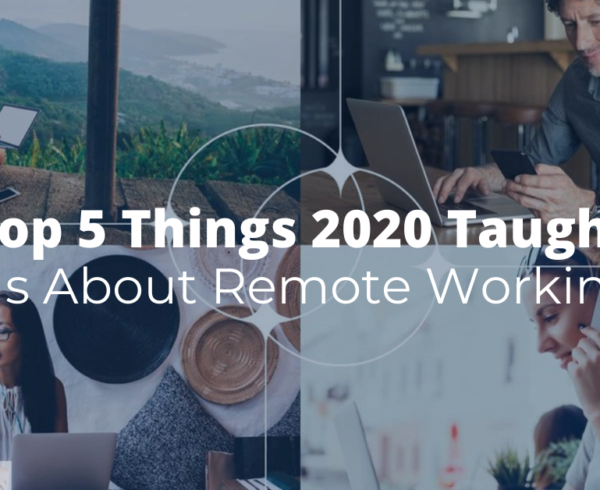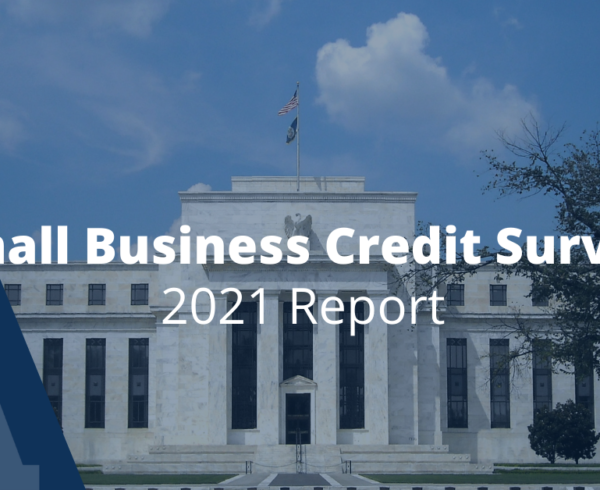3. Education and workforce development
According to the U.S. Census Bureau, the poverty rate is 33% for people who do not graduate from high school, compared to 5% for those with a bachelor’s degree or higher. It is imperative that educational opportunities and outcomes are maximized and accessible for all Louisianans. Equitable practices within education can lead to increased opportunities abundant workforce, economic and community growth, and a viable and abundant workforce that can meet the needs of Louisiana employers. To stay competitive and continue the diversification of our economy, Louisiana must also emphasize workforce development and continuing education efforts. Increased training, and reskilling and upskilling of the state’s workforce can support more economic growth, as well as better earnings and opportunities for Louisiana employees.
Focus on the individual and family
- Transform the necessary education and workforce systems to center on the person and the family
- Ensure Unemployment Insurance Trust Fund solvency, recognizing its critical role in supporting resiliency for individuals, families and businesses
- Restore the Incumbent Worker Training Program (IWTP), upon which many Louisiana businesses, including small and mid-size enterprises, depend to reskill and upskill their workforce and offer opportunities for advancement
- Provide resources to help families transition to working and/or learning from home
- Align state plans to allow the Workforce Innovation and Opportunity Act (WIOA) funding to enhance service delivery and coordination of services provided by state partners
- Prepare a crisis-informed snapshot of the state of the economy and opportunity in Louisiana
- Provide trauma-informed support for Louisiana children and families
- Ensure collaborative regional processes include all agencies and entities focused on human development to maximize efficiency and responsiveness
Increase access to early childhood education
- Increase investments and address funding gaps to ensure more children from economically disadvantaged families take part in early childcare education programs
- Address funding gaps in infant care identified by the Louisiana Early Childcare Commission
- Explore incentives for businesses to assist employees with childcare challenges
Improve K-12 education outcomes
- Expand digital learning opportunities and improve access so that every K-12 student has a digital device
- Ensure access to high-quality career counseling
- Adopt a continuous learning plan in the event of future school closures or disruptions
- Develop more work-based learning models, such as immersion programs and apprenticeships
- Increase education and awareness of career opportunities in traditional Louisiana sectors like manufacturing, agriculture and other growth industries of the future
- Support and leverage regional Science, Technology, Engineering and Mathematics (STEM) Centers to build early STEM literacy and later acquisition of STEM skills important to resiliency, with a specific focus on underrepresented populations and underserved locations
- Expand Jobs for America’s Graduates (JAG) programs across the state
Improve higher education outcomes
- Develop strategies for specific challenges to resiliency encountered by HBCUs and other minority-serving institutions
- Implement best practices in higher education funding to maximize equity and alignment of skills to the state’s economic needs
- Continue to direct funding to higher education in conjunction with economic development projects and opportunities
- Promote more innovation and research focused on issues faced in traditional Louisiana industries
- Strengthen investments in statewide research universities
- Provide flexible curriculum options that make it easier for students to complete programs
- Increase focus on recruiting and retaining rural students
- Develop more work-based learning models, such as immersion programs and apprenticeships
Increase coordination between workforce-focused agencies
- Build upon engagement and collaboration opportunities between LED, LWC, LCTCS, regional partners and others to produce skilled workers that are employment-ready for Louisiana businesses
- Secure funding and services for agencies focused on increasing economic opportunities for citizens through workforce development and skills training
- Support regional and local economic development organizations to identify and address the shifting requirements and alignment of skills in their respective locations
- Secure and fully utilize available sources of federal, state and special-use funds for the best outcomes at the state, regional and local levels
Create pathways for underemployed and unemployed populations
- Include pathways in education and training programs for under-educated and formerly incarcerated residents
- Determine strategies to establish safety nets, educational opportunities and support programs for adult learners
- Use comprehensive and effective data analysis and assessment tools to better understand the factors affecting the underemployed and unemployed populations, including social determinants of health, mental health stressors and the challenges faced by Asset Limited, Income Constrained, Employed (ALICE) households
- Interwork resilient skill sets in learning programs through the support and leverage of STEM centers to build STEM literacy and skills
Improve and increase training centers and ongoing learning
- Transform Louisiana into a hub for advanced manufacturing training
- Explore funding models for short-term credentials that are in high demand as a result of the COVID-19 pandemic
- Create medium-term training opportunities in fields that are in high demand because of the COVID-19 pandemic
- Establish funding for apprenticeships and training programs to increase real-world learning experiences
- Partner with the Cybersecurity Commission, the CyberInnovation Center/National Integrated Cyber Education Research Center and others to advance skills development and education related to cybersecurity
- Create training programs through LED FastStart to assist companies that may need to adapt to new economic realities
Access to available jobs and information
- Employ collaboration between local and state leaders to encourage job seekers and employers to use the Louisiana Workforce Commission’s Helping Individuals Reach Employment (HiRE) system to maximize central data collection and ensure more jobs are posted on a single, accessible site
- Create videos and electronic guides to demonstrate how job seekers and employers can use the HiRE system
- Update the occupational forecast to accommodate current economic conditions
- Develop data infrastructure that allows for the collection and reporting of workforce and industry-based certification
4. Small businesses and entrepreneurship
A strong economy depends on a thriving small business environment. According to the SBA, before the pandemic, Louisiana’s small businesses employed 53% of the state’s private workforce. Small businesses have been severely impacted by the COVID-19 pandemic and Louisiana must develop sound strategies and policies to help mitigate damages to existing small businesses, while also developing ways to foster new small businesses in the aftermath of the pandemic. Removing barriers and assisting small businesses creates economic growth and increased opportunities for all Louisiana citizens.
Increase access to capital
- Adopt and implement best practices and models that have been successful in other states
- Implement recommendations identified by the Governor’s Small Business and Entrepreneurship Council
- Create a minority capital investment fund for small businesses
Increase entrepreneurship opportunities
- Clear the entrepreneurial path by creating better, easier paths to business creation, reducing licensing requirements and increasing awareness of barriers to entrepreneurial action
- Appoint a state Chief Entrepreneurship Officer to work across agency lines to make Louisiana a more entrepreneur-friendly state
- Increase entrepreneurship education and mentoring and build upon LED’s Main Street and Economic Gardening successes
Incentives and training
- Provide incentives for small businesses to complete necessary retrofitting for COVID-19
- Foster a statewide small business and startup mentoring network
- Increase access to broad technical assistance, business counseling and reopening advice
- Consider offering tax credits to businesses that purchase PPE
- Re-establish sales tax holidays to incentivize local purchases
Increase opportunities for small businesses
- Expand the Louisiana Procurement and Technical Assistance Center (PTAC)
- Increase e-commerce capabilities for small businesses to help them reach a larger customer base
- Encourage manufacturers and other economic driver companies to source and use local small businesses in Louisiana
- Support rural startups by enhancing access to state purchasing opportunities
5. Government engagement
This moment provides an opportunity to enact policies that address the more acute problems created by COVID. Officials can support economic competitiveness by enacting modern tax and regulatory standards that will position the state to attract and retain the best companies and workers.
Fiscal reform
- Evaluate deductions and credits for possible elimination, broaden the tax base, and lower tax rates
- Simplify Louisiana’s business tax structure to increase economic competitiveness against other states
- Modernize and streamline sales tax collections
Business liability and risk management policies
- Monitor classification of infectious diseases as it relates to workers’ compensation claims and being listed as a ‘recordable incident’ by OSHA
- Create guidance for employers that they can use to prevent spreading infectious diseases while not violating HIPPA laws
Tax incentives
- Evaluate and modernize incentives to ensure they are targeting high-paying, growing industries
- Make incentives flexible so they can be altered to remain up-to-date and focused on new, emerging and growing industries
- Renew the Louisiana New Markets Tax Credit to leverage available capital
- Expand the Angel Investor Tax Credit to allow for a larger tax allocation for investments that promote inclusivity and equity (e.g., DBEs, women- and veteran-owned businesses)
- Consider incentives for building owners who are altering properties to better prevent the transmission of infectious diseases
Business development strategies and economic diversification
- Develop strategies within LED to capture reshoring opportunities in manufacturing and technology
- Utilize Louisiana’s geographic advantages to increase Louisiana’s presence in areas like water management and carbon capture and isolation
- Work to attract more corporate and regional headquarters for companies in traditional Louisiana industries
- Grow traditional gaming and tourism industry by authorizing sports betting and iGaming
- Evaluate potential impacts of automation and artificial intelligence and map out ways for Louisiana to take advantage of it
- Create relocation incentives that target remote workers who can work from any location
- Protect existing funding and provide additional support to Convention and Business Bureaus/Destination Marketing and Management Organizations for marketing and promotional efforts that can help stimulate the tourism, hospitality and entertainment industries across the state
Regulations and planning for future disruptions
- Instruct appropriate state regulatory agencies to create a pandemic or economic disruption playbook that guides businesses regarding appropriate procedures and policies
- Develop a distance learning plan for all schools that includes surveying for what limitations (internet, digital devices, childcare) might exist for implementation
Climate change
- Follow the recommendations made by Gov. John Bel Edwards’ Climate Initiatives Task Force
- Encourage investment in new energy technologies such as engineered carbon capture, solar, wind and other renewable technologies from both an economic development and fleet diversification perspective
- Develop partnerships with utility companies to better understand customer needs and associated costs
- Consider offering incentives for larger-scale generation versus individual consumer diversification to help mitigate ratepayer cross-subsidization
- Research and develop policies that encourage the development of more renewable energy sources
If Louisiana follows the recommendations of the RLC, both near and long-term, the state will emerge from this pandemic better, more resilient.













